CSPO News Announcements
-

The Future of Conflict
Our newest publication explores the emerging technologies that are destabilizing modern conflict.
We live in a world where the opportunities for conflict are rapidly multiplying, and where the accelerating evolution and democratization of military and security technologies make such conflicts far riskier. This rapidly evolving environment is destabilizing geopolitical and technological systems in ways that make much existing conflict strategy questionable, if not obsolete.
-

Can Science Be Saved?
In a landmark new essay, Daniel Sarewitz explodes our myths about science and how it's supposed to work.
“From metastatic cancer to climate change to growth economics to dietary standards, science that is supposed to yield clarity and solutions is in many instances leading instead to contradiction, controversy, and confusion.”
-
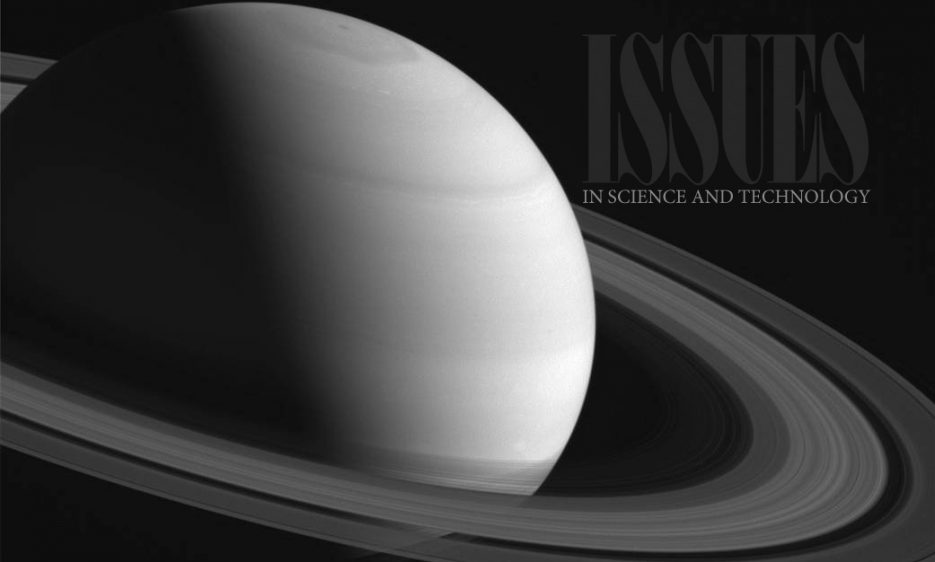
Summer 2016 Issues in Science and Technology
The latest "Issues in Science and Technology" examines new frontiers of space policy, pricing ecosystem services, dysfunction on the Chemical Safety Board, and more.
The Summer 2016 “Issues in Science and Technology” tackles everything from space policy reforms to combatting the next global pandemic.
-
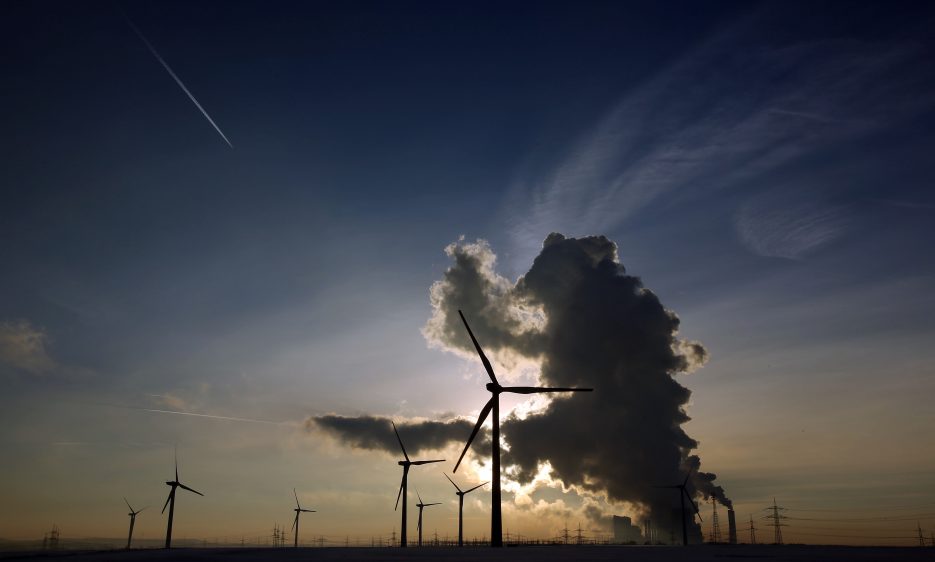
Germany’s Energiewende and Its Discontents
As one of the world's largest economies transitions to clean energy, Germany's ambitious goals face a number of hurdles.
CSPO scholar and School of Sustainability Ph.D. student Christine Sturm takes a close look at Germany’s energy system experiment in a new essay for the Bulletin of the Atomic Scientists.
-
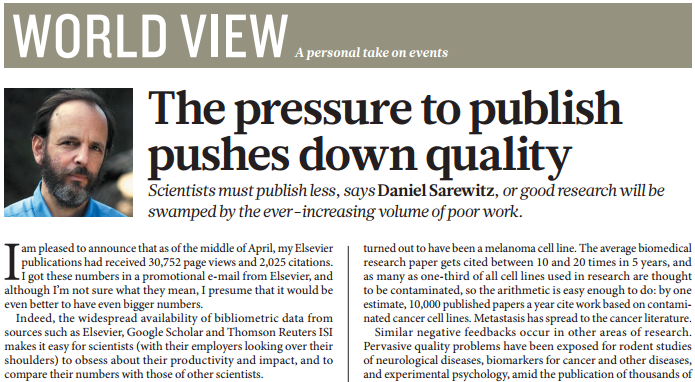
Pressure to Publish
Current trajectories threaten science with drowning in the noise of its own rising productivity, according to CSPO's Dan Sarewitz.
A new Nature article by Dan Sarewitz, suggests that the pressure to publish in the scientific community has led to a growing body of poor work. “Avoiding this destiny will, in part, require much more selective publication,” wrote Sarewitz. “We can start by publishing less, and less often.”
-
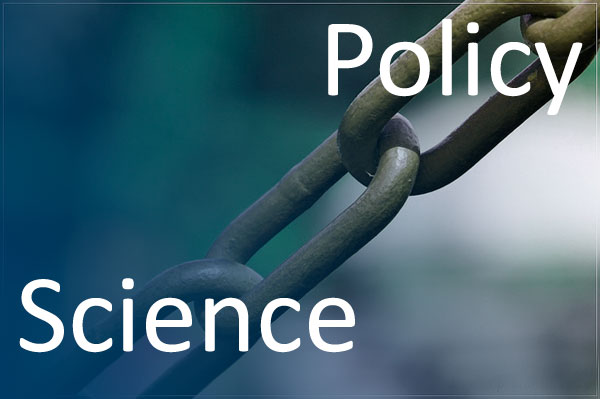
CSPO ranked among top S&T think tanks
The Consortium for Science, Policy & Outcomes has been ranked tenth worldwide among science and technology think tanks.
The Consortium for Science, Policy & Outcomes (CSPO) at Arizona State University has been ranked tenth worldwide among science and technology think tanks in the recently issued 2015 Global Go To Think Tank Index Report. In the ranking, CSPO is the top university-based Science and Technology think tank in the US.
-
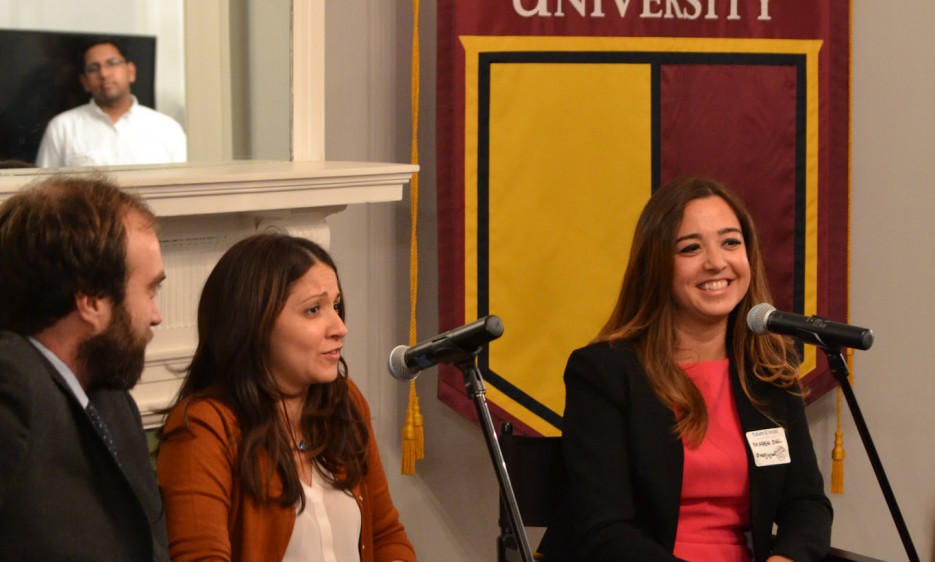
Science and technology collaboration provides diplomatic openings
ASU's new School for the Future of Innovation in Society leads the university's global science & diplomacy efforts
Diplomacy is an art, not a science. But science increasingly plays an important role in diplomacy. Some of our biggest challenges can’t be contained within borders, which means that nations around the world need to coordinate their efforts. Meanwhile, science itself can be used as an olive branch: Even when two countries’ political leaders aren’t on good terms, their scientists can exchange ideas, paving the way for more communication down the road. The School for the Future of Innovation in Society has been leading efforts to use science and technology to improve international relations.
-

Managing the complexities of power supply, demand
STIR Cities - new NSF-funded project
While innovations are helping to create “smarter” grids that enable utilities to better monitor, manage and adapt to these changing energy flows, innovations also introduce new issues related to citizens’ rights and responsibilities when it comes to consuming and producing power.
-
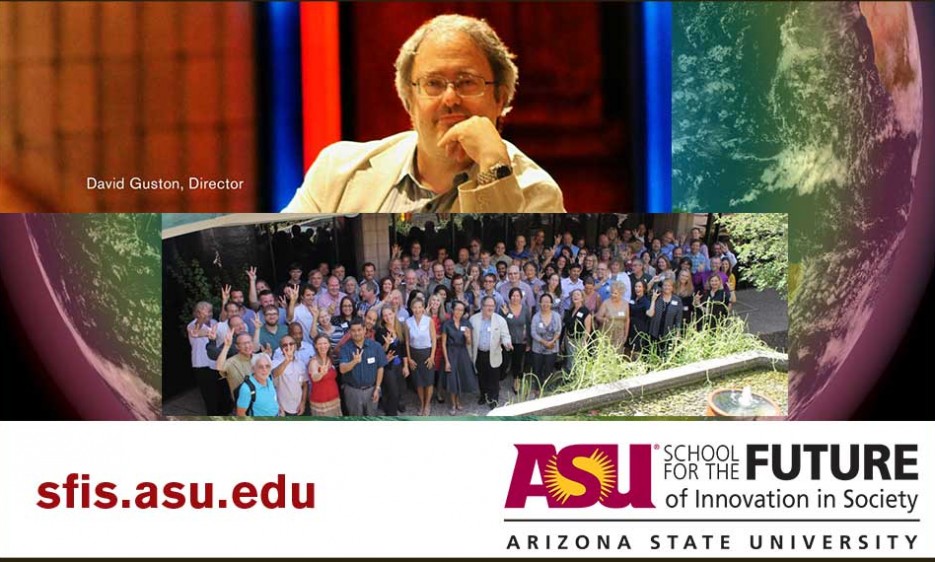
New school explores how we can best make the future we want
The future—how do we get there from here?
CSPO is pleased to announce the launch of the new School for the Future of Innovation in Society at ASU.
Find additional features in ASU News and AZcentral.